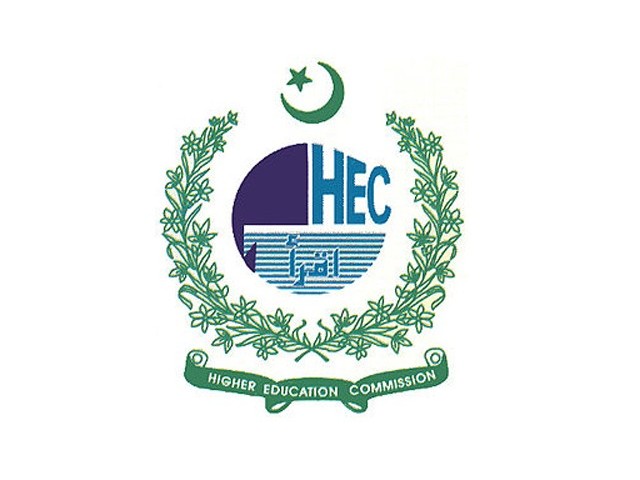
On the other hand, the provincial HEC hasn't made a strong case for itself over the years. It is being run on an ad hoc basis from a bungalow, with very few people on board to undertake the gigantic responsibility of catering to the academic and financial needs of the scores of public and private varsities in the province. What is even more ironic is that of the few people running the Sindh HEC, even fewer have prior experience of working with varsities or managing their affairs.
Functions
At its onset, the Sindh HEC was envisioned as an autonomous institution that would steer higher education across Sindh by giving direction, developing policies and protocols, ensuring quality, providing forums of international collaboration and linking industries with academia. The provincial body, much like its federal counterpart, would also distribute adequate funding for higher education institutions, explore students and faculty exchange programs, certify academic programmes, disburse scholarships for students & staff and act as a think tank for national socio-economic planning.
Unfortunately, the Sindh HEC has been unable to perform many of its functions owning to a plethora of reasons, not least because of the lack of able leadership and dedicated staff members.
Systemic failure
Since the very beginning around six years ago, the Sindh HEC has been struggling to find its feet, much in contrast to the Punjab HEC, which was established two years later. The latter enjoys a much better reputation and is actively contributing to the development of higher education in the province.
The Sindh HEC, meanwhile, has been struggling to develop its capacity, structural formalities, legal standings, its actual organisational framework and rules of business. Over the years, there have hardly been any meetings with the vice-chancellors of universities in the province with the Sindh HEC leadership - a fact that underscores the apathy toward this special area of education.
Amid all this, higher education institutions in the province are left wondering who they should reach out to for support.
After the 18th Amendment, which devolved the subject of education to the provinces - the federal HEC encourages varsities to seek funding from their respective provincial governments. On the other hand, the province has been unable to secure much funding from federal agencies because the Sindh HEC lacks adequate or competent human resource to be able to submit rational and tangible plans to fight their case for funding in front of federal institutions.
Confusion prevails
Since the Sindh HEC has been established , there have been several cases where varsities have been managed and run by caretaker vice-chancellors for over a year. What is perplexing about this is that even though the authorities know when a particular VC's tenure would expire, having notified their appointment in the first place, why is there then a delay in appointment their replacement?
Further, even when a VC is appointed, they are thrown into the deep end and must learn to swim or float on their own, without going through any training or capacity-building, which leads to serious administration issues.
All this leads to chaos on the ground level and varsities, which are already struggling to function amid tough financial constraints, must now cope with a rudderless regulatory body that is least bothered about the students' futures. As a result, higher education institutions, which are already lagging behind in terms of both quality and quantity of research, are further hampered by the lack of seriousness towards this essential component of higher education. Moreover, even the purchase or up gradation of equipment, provision of facilities and infrastructure and development of various projects are at stake.
The way forward
One of the most important functions of an institution like the HEC is to work on knowledge economy, which has unfortunately been completely remiss from the dialogue till now. Developed countries such as New Zealand, England, Singapore, USA and Australia have shown remarkable progress in this area and have almost conquered the market. Higher Education institutions in these countries have also been contributing to the national GDP, as the varsities offer governance models, quality standards, research modules and opportunities, institutional automation and trainings. They very smartly get funds for their programmes from international donors and agencies and run the same by engaging developing countries.
Another important responsibility of Sindh HEC is to explore more national and international sources of funding, research opportunities, international collaborations and joint ventures from the platform of SAARC, UNESCO, UNICEF and the ADB, among others. At the same time, we can secure funding from international donors or agencies to give more grants and scholarships to cope with the challenges of the 21st century.
A new trend in higher education is to create, widen, augment and manage the university's research programmes and link them unswervingly to the educational, socio-economic provincial and national priorities, as well as those of the larger community. The Sindh HEC should guarantee that all research work and policies reflect the national core values of academic freedom, global professional integrity and highest ethical conduct and full compliance with all international policies, legal requirements and operational standards set by the universities' act.
So far, the above-mentioned objectives seem difficult to attain but I am certain that they are not impossible. If we start working on these guidelines today, I can guarantee that in four to five years, with the help of just 10 competent and committed people, we will set the direction of Sindh HEC to take up the charge of universities without compromising on their autonomy.
The author is a former Vice-Chancellor of the Shaheed Benazir Bhutto University, Nawabshah, and has also served as chairperson of the Board of Intermediate and Secondary Education, Nawabshah
Published in The Express Tribune, November 25th, 2019.




1730959638-0/trump-(19)1730959638-0-165x106.webp)












COMMENTS
Comments are moderated and generally will be posted if they are on-topic and not abusive.
For more information, please see our Comments FAQ